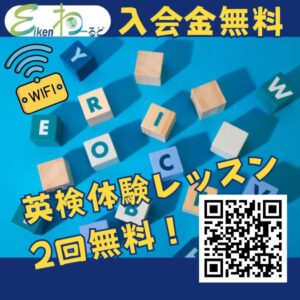◢◤ラジオは「the radio」テレビは「on TV」になる理由◢◤
【ラジオは「the radio」テレビは「on TV」になる理由】
英語では、「the radio」と「on TV」のように異なる冠詞の使い方がされるのは、以下のような文化的・言語的な背景があるためです。
📻ラジオ (the radio) の場合
*ラジオは「装置」と「メディア」の両方を指す
「the radio」という表現は、ラジオが登場した当初から
「特定のメディア」を指すために使われていました。
ここでの「the」は、ラジオというメディア全体を象徴的に
指しているためです。
EX. I heard it on the radio. ⇒ それをラジオで聞いた。
*具体的な装置としても使われる
ラジオを物理的な装置として指す場合も
「the radio」が使われます。
Ex. Turn on the radio. ⇒ ラジオをつけて
📺テレビ (on TV) の場合
*テレビは「メディア」に焦点を当てる
「on TV」という表現では、テレビを「装置」としてではなく、
テレビ放送という「メディア」そのものに焦点を当てています。
この場合、冠詞(the)は必要ありません。
Ex. I saw it on TV. ⇒それをテレビで見た。
この「on TV」の「TV」は、
抽象的な概念としての「テレビ放送」を意味しています。
そのため、冠詞を付けずに使うのが自然です。
慣用的な表現
「on TV」という表現は、英語圏で慣用的に定着しています。
冠詞を省略することで、より簡潔で一般的な表現になっています。
2. ラジオとテレビの違いの背景
この違いは、ラジオとテレビの歴史的な発展や使われ方の違い
にも影響されています。
📻ラジオの登場時
ラジオは、初期から「the radio」という言葉で
「特定のメディア」を指す表現が一般化しました。
装置そのものとメディアが密接に結びついていたためです。
📺テレビの登場時
テレビが普及した際には、
「TV」という言葉が「テレビ放送全般」を指す抽象的な意味で
使われるようになりました。
そのため、冠詞が不要な「on TV」という表現が一般化しました。
3. まとめ
📻ラジオは「the radio」
→ ラジオ装置やメディアを特定のものとして扱うため、
冠詞「the」が必要。
📺テレビは「on TV」
→ テレビ放送という抽象的な概念を指すため、冠詞は不要。
📻 The Radio
1. “The radio” refers to both the device and the medium
From the early days of radio, the phrase “the radio” was used to refer to a specific medium.
Here, the article “the” symbolizes radio as a distinct, recognized form of media.
Ex. I heard it on the radio.
→ I heard it through radio broadcasting.
2. Used for the physical device as well
When referring to the actual radio device, “the radio” is also used.
Ex. Turn on the radio.
→ Turn on the radio set.
📺 On TV
1. Focuses on the medium, not the device
The phrase “on TV” refers to television as a broadcasting medium, not as a physical device.
In this case, no article (the) is needed.
Ex. I saw it on TV.
→ I saw it on television.
Here, “TV” represents the abstract concept of television broadcasting, so it is naturally used without an article.
2. A conventional expression
The phrase “on TV” has become idiomatic in English-speaking countries.
Omitting the article makes it simpler and more general in use.
2. Background: The Historical Difference
📻 When radio first appeared
From the beginning, “the radio” became a standard way to refer to a particular form of media, because the device and the medium were closely connected.
📺 When television became popular
When TV spread later, the word “TV” came to represent television broadcasting as a whole, an abstract idea.
As a result, the article was dropped, and “on TV” became the common expression.
3. Summary
Medium Expression Explanation
📻 Radio the radio Refers to a specific medium or device → requires “the”
📺 Television on TV Refers to broadcasting as an abstract concept → no article needed
☆-★-☆-★-☆-★-☆-★
Do you know any Japanese living overseas who are interested in taking the EIKEN test?
If you introduce someone who joins our program, they’ll receive free admission (no enrollment fee) and a complimentary e-book to support their study.
As a thank-you, you’ll receive ¥1,000 as Amazon gift for each person who enrolls through your introduction.
Let’s help more Japanese learners abroad achieve their EIKEN goals together! 🌏✨
✉info@eikenworld.com
☆-★-☆-★-☆-★-☆-★
![]()
にほんブログ村
![]()
にほんブログ村
![]()
にほんブログ村
![]()
にほんブログ村
☆-★-☆-★-☆-★-☆-★
Please click the button!
【Eikenわーるど】https://eikenwworld.com


